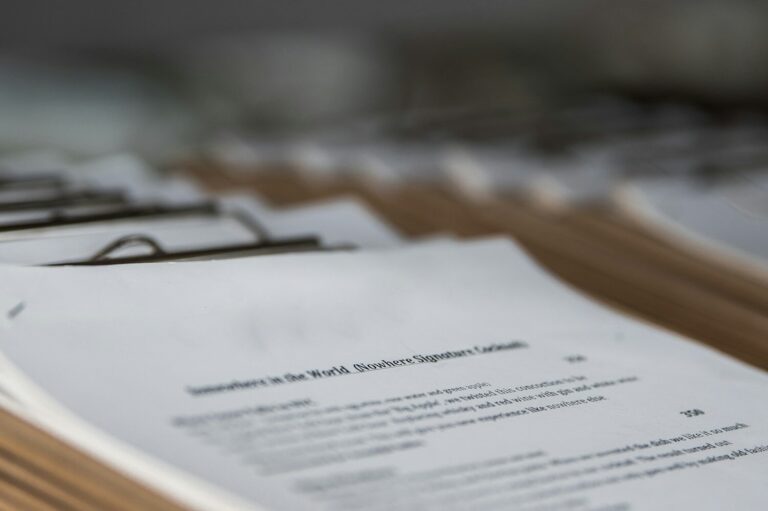A visa sponsorship letter – sometimes called an invitation letter – is a supporting document used in visa applications to confirm that the applicant has a UK-based sponsor. This person agrees to support the applicant during their stay, providing clarity on the purpose of the visit and demonstrating that the applicant has suitable accommodation and financial support if needed.
Whether you’re inviting a relative, friend or business visitor, the letter plays a key role in helping UK Visas and Immigration (UKVI) understand the nature of the visit. Done well, it can strengthen the overall application and reduce the risk of refusal.
What is a visa sponsorship letter?
A visa sponsorship letter is a written statement provided by someone in the UK who agrees to support a visa applicant during their visit. It typically includes a description of the relationship, why the person is visiting, how long they plan to stay and where they will live while in the country.
Although not legally binding or required for every visa type, a well-written sponsorship letter can significantly improve the chances of approval – particularly for standard visitor visas or family visits. Despite the name, this isn’t related to a sponsor licence application.
Who can write a sponsorship letter?
Anyone with legal residence in the UK can write a sponsorship letter. This includes British citizens, individuals with indefinite leave to remain and people with valid immigration status such as work or student visas.
The key requirement is that the sponsor must have a genuine relationship with the applicant – whether family, friendship or professional – and must be able to provide accurate information about the visit.
If the sponsor is offering financial support or accommodation, they may also need to provide documentation showing their ability to do so.
What to include in the letter
The content of the letter should be clear and straightforward. It typically includes:
- Full name and contact details of the sponsor
- Immigration status or proof of residence in the UK
- Relationship to the visa applicant
- Reason for the visit (e.g., tourism, attending a wedding, business meeting)
- Duration of the stay and where the applicant will stay
- A declaration of financial support, if applicable
- A signature and the date
Supporting documents to strengthen your letter
To ensure your sponsorship letter is taken seriously by UKVI, it’s best to include supporting documentation. While the letter itself is important, it should be backed up by evidence of your ability to support the visitor and the validity of your relationship. This might include:
- A copy of your passport or visa
- A utility bill or tenancy agreement showing your UK address
- Recent bank statements or payslips to prove financial support
- Proof of your relationship with the applicant (e.g. birth certificate, photos, messages)
- A copy of the applicant’s passport
These documents don’t need to be certified, but they should be current, clearly legible and relevant to the purpose of the visit.
Common mistakes to avoid
When writing a sponsorship letter, avoid being vague or overly generic. Immigration officers are looking for specific details that help them understand the visitor’s plans and confirm that they will not overstay or claim public funds.
Steer clear of:
- Omitting important details such as dates or addresses
- Making unrealistic promises about the visit
- Using an overly casual tone
- Failing to mention accommodation or financial support
A letter that’s rushed or incomplete could raise more questions than it answers – and potentially harm the visa application.
Is a sponsorship letter required for every visa?
Not every UK visa application requires a sponsorship letter. For instance, work visa applications (such as the Skilled Worker visa) rely on an official Certificate of Sponsorship issued by an approved employer. However, sponsorship letters are commonly used in:
- Standard visitor visa applications
- Family visitor visas
- Short-term study visas
- Business visitor visas
In all of these cases, the sponsor is acting in a personal or informal capacity rather than a legal one.
Final tips for success
Keep your letter concise – one page is usually enough – and ensure all the information is factually accurate. Use a formal tone, but make sure it sounds like it was written by a real person rather than copied from a template.
Although there are many sample letters online, it’s best to personalise your own to reflect your situation. If you’re unsure what to include, consulting with an immigration solicitor can help clarify what UKVI expects for your specific visa category.
Osbourne Pinner has a wealth of experience in individual immigration for applicants across the globe who want to come to the UK. For more information, book your free 30-minute consultation. Use the form below, call 0203 983 5080 or email [email protected]. You can also visit our offices in Harrow, Canary Wharf, Piccadilly Circus and Manchester.




